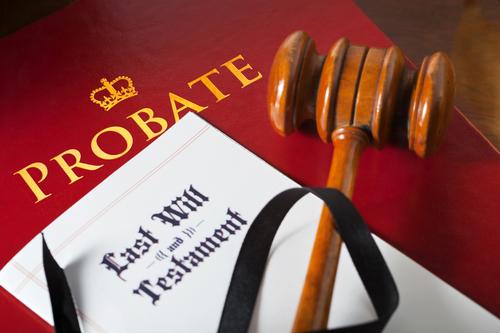
Lowest Prices Guaranteed
Blog
Get your inheritance money fast!
Posts

Who Is The Manager Of An Estate?
There are two different terms for the individual that manages the process of an estate; either an Executor or Administrator. If there is a Will, the manager will be referred to as the Executor, and the estate is deemed to be Testate. If there is no Will, the manager will be referred to as the Administrator, and the Estate is deemed to be Intestate. Generally, a Will names an Executor. If an Executor is notRead more

What Is The Difference Between A Trust And A Probate Estate?
In the state of California, the estate of a decedent will normally be managed and distributed by either a Trust or a court supervised probate process. One exception is that if the net value of the estate is less than $150,000 (in personal property), the administrator may choose to bypass both and simply pay the debts of the estate and distribute the remaining assets to the heirs. For real property valued at less than $150,000Read more

Inheritance Loan vs Inheritance Cash Advance
You may be an Heir or an Administrator in a Probate Estate that is expecting or in need of cash. In general, a Court appointed Administrator may take out a secured loan (secured by the Estate home) for the benefit of the Estate. An Heir has no authority to encumber the Estate home or take out any such loan. But an heir can receive a cash advance on his/her inheritance. When you see a cashRead more

Am I A Probate Heir?
How are heirs in a probate estate determined? Often times, the deceased has left behind a Will, in which the beneficiaries are specifically identified. The respective amounts or percentages for the beneficiaries may be equally shared, or the deceased may have determined different percentages or amounts, or other various options. If there is no Will, then California Probate Code establishes entitlement per a family tree scheme. This default entitlement scheme (called intestacy) can be aRead more

What Are The Benefits Of A Probate Cash Advance?
The probate process in the State of California, now takes about 18 months. It is not uncommon for this to take considerably longer. The Courts maintain strict oversight over the process, but are extremely overburdened. Hearing dates are constantly pushed out, and there are often other matters that delay receipt of an inheritance. Meanwhile, the heirs may have pressing financial needs, such as 1.Immediate need for burial expenses 2.Cash to clean up and upgrade EstateRead more

What is the difference between a loan and a probate cash advance?
I will begin by stating that while most people think of a probate cash advance as a loan, this is generally not the case. Most probate inheritance cash advances are actually assignments of interest. The heir has a probable inheritance coming their way, but often cannot wait until the completion of the court supervised process, for all or part of the inheritance. This may literally take 18 months or more. An assignment of interest isRead more

How Is the Administrator of an Estate Determined?
In the Estate where a Will is offered for probate, a proposed executor (and sometimes an alternate) is nominated in the Decedent’s Will. The deceased will generally choose a trusted family member, and occasionally they will choose an unrelated trusted individual such as a lawyer, financial specialist, or private professional fiduciary. In an Estate where there is no Will, and thus no named Executor, there is a default statutory priority as to who can beRead more

Does your Probate Estate includes Property with Outstanding Mortgage Balance?
What to do when a probate estate includes property that has an outstanding mortgage balance? Most often, a probate estate includes a home or other properties that have an open mortgage balance. It is crucial that payments on the mortgage are kept up to date. It is the obligation of the estate administrator to see this is done (if possible), to ensure that the home, including equity, is not lost to foreclosure. Of note, theRead more

The Advantages of a Probate Cash Advance
You have just learned that you are an heir to a probate estate. Of course you are saddened by the loss of a loved one, but adding to your woes, you learn that it will probably take 12-18 months for you to have access to your share of your inheritance. Frankly, it may even take much longer. The Court supervised process managing probate is cumbersome and lengthy. If there is more than one heir, thereRead more

Do You Need a Probate Attorney?
In the State of California, the executor of an estate has the right to hire a probate attorney to assist in the management of process, or to keep matters in their own hands. If the executor wishes to control the process by themselves, the estate is called “in pro per”. That signifies that there is not an attorney supervising the process. In either case, the process will still be overseen by the Courts. Often this decision is bestRead more

Contact
- 7301 Topanga Canyon Blvd #202
- Canoga Park, CA 91303
- P 800-624-0878
- F 818-407-5168
- E funding@advanceinheritance.com
